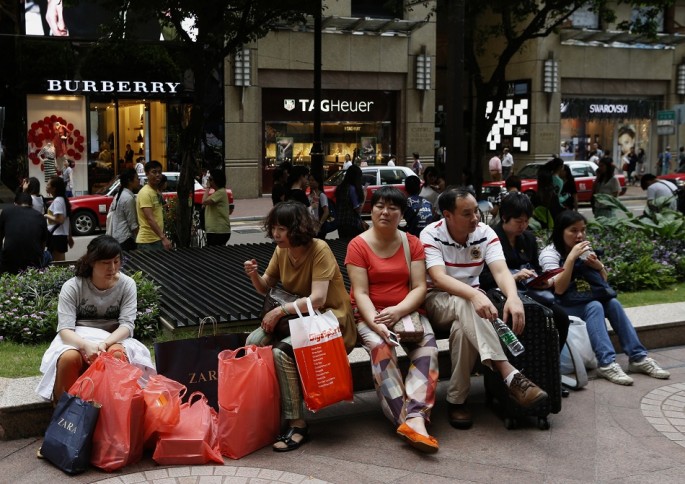Most Chinese would rather spend their lunar holidays shopping according to Dianping.com, a rating website for entertainment and dining services.
This was supported by a Ministry of Commerce statement that showed shops and restaurants across the mainland pocketing 678 billion yuan ($111.1 billion) in sales volume, up 11 percent from last year's holiday period.
In Osaka, duty-free sales to foreigners at department stores were up more than triple this year, spurred by visitors from the mainland, Taiwan and Hong Kong.
However, retailers in Sha Tin malls would not feel this after the number of mainlanders coming to Hong Kong during the holiday dropped from 851,375 last year to 842,124, according to Immigration Department figures.
This was preceded by a protest on Feb .15 at the New Town Plaza in Sha Tin urging "mainlanders go back to the mainland." This will be followed by another protest on Sunday at Yuen Long.
But the slowdown was good news for Hong Kong-based shoppers who reported they could finally enjoy the malls without the crowds.
Meanwhile, Dianping.com also noted that getting foot massages, hotel stays, cafes and karaoke rounded out the top five forms of entertainment.
Other favorite lunar holiday activities include visiting hair salons, getting facials, getting spa treatments and doing outdoor sports.
Hong Kong has the biggest spenders, shelling out an average of 1,490 yuan ($238) compared with the national average of 304 yuan.
Residents in Shanghai came in second, spending an average of 708 yuan, while those from Beijing came fifth with consumers spending 473 yuan on average.
Hong Kong and Macao have the most expensive diners, spending an average of 150 yuan and 145 yuan, respectively, more than double the 72-yuan national average.
Shanghai has the most generous mainland spenders on fine dining at 107 yuan, followed by Beijing residents at 98 yuan.
The most popular dish was sanbeiji, or stewed chicken with rice wine. They also feasted heavily on roast duck, lamb skewers and grilled fish. Top desserts were crispy durian cake, Tiramisu and ice cream.
In a report by China Tourism Academy, it was shown that 60 percent of Chinese tourists headed overseas for the lunar holiday, the first time outbound holidaymakers outnumbered those traveling within China.
Beijing was the top local destination, with Shanghai, Guangzhou and Shenzhen rounding out the top four.



























